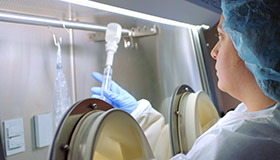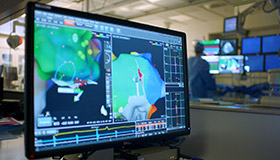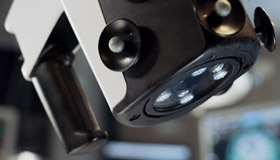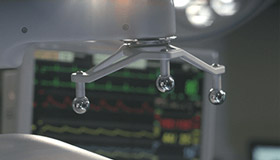HeartFlow® Gives Life-Saving Insights
For Karen Fantoni, staying healthy wasn’t just about exercise and eating well. She had to closely monitor her heart health.
Over the years, Karen had several episodes or “spells” as she called them, in which she experienced shortness of breath and chest tightness. These episodes led her to have several stress tests and echocardiograms, yet they always came back normal.
That is until a cardiologist at Allegheny General Hospital, recommended an innovative new test: HeartFlow.
An unprecedented look into the heart.
In 2016, a pilot program for HeartFlow, a non-invasive cardiac test that that analyzes fractional flow reserve derived from a CT scan, began at Allegheny Health Network — the first place in Pennsylvania to use it.
HeartFlow produces a 3-D rendering of the heart to identify if blood flow is normal or if there are blockages. If it is normal, a heart catheterization isn’t necessary, but if the flow is below 80 percent, care is needed quickly.
When her cardiologist called Karen, she wasn’t anticipating the news she received:
“He said, ‘You have a significant blockage; we need to send you to the catheterization.’ I really wasn’t expecting that result, but my artery flow had anywhere between 80–90 percent blockage. I was basically a walking time bomb.”
Persistence pays off.
Karen got the call about her blood flow on a Friday and had a stent placed on Tuesday.
Despite her normal heartbeat, ultrasound, cholesterol, and stress tests, her life was saved because Dr. Shah insisted on using groundbreaking technology to ensure she was okay.
“I’m grateful that HeartFlow was available. A few years ago, my husband died unexpectedly of a heart attack, at age 47. He had no signs of a problem, and he wasn’t on any medications,” Karen noted.
“Had HeartFlow been available then, my husband may still be here today.”
Contact Us
If you think a HeartFlow scan could positively impact your health or the health of a loved one, request an appointment with one of our experts or get more information about Allegheny Health Network Cardiovascular Institute.





